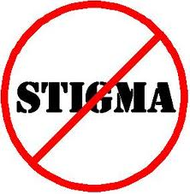Overcoming the Stigmas of Drug Addiction
Posted by Tommy Zimmer on 20th Jul 2017
According to the National Institute on Drug Abuse (NIDA), forty to sixty percent of people who undergo drug addiction treatment end up relapsing. If this occurs, sometimes people feel as if they’ve failures. The institute notes that addiction treatment needs “continual evaluation and modification as appropriate, similar to the approach taken for other chronic diseases.”
NIDA notes that the addiction relapse rate is not that much different than the relapse rates for asthma or diabetes. Diabetes, with a relapse rate of thirty to fifty percent, is closer to the relapse rate for drug addiction. Meanwhile the relapse rate for asthma, at fifty to seventy percent, is much higher.
These statistics illustrate that you can’t fix an addiction overnight. You may undergo severe continued addiction troubles that you can’t immediately erase.
Sometimes, when you leave rehab, life is still not easy. One of the biggest issues for someone recovering from addiction, according to the Drug Policy Alliance, is the stigma that often comes along with addiction. “People who are stigmatized for their drug involvement can endure social rejection, labeling, stereotyping and discrimination,” the Alliance stated. These types of stigma can manifest themselves in many different ways for people. Nevertheless, these stigmas can be still very difficult to combat.
If you took a semester off from college and are returning after seeking treatment, you might be coming back to an undergrad world where your friends have moved ahead with their academic and social lives. You might feel as if they’ve left you behind. Your friends may not wish to have anything to do with you anymore because of your previous addiction troubles.
Or, you may have been working for a company that sent you to rehab after it discovered your substance abuse. Many people at your workplace could see you differently now. They may be careful in how they act or what they say when around you, or they might not interact with you as much as before.
The Drug Policy Alliance noted that drug abusers might encounter different kinds of types of stigmas. People who use legal drugs such as alcohol or cigarettes might have stigmas against people who use illegal drugs. Alternatively, people using illegal “soft” drugs such as marijuana could have negative feelings toward those who use “hard” drugs such as cocaine. Stigmatized people may encounter terms such as “pillhead,” “junkie,” or “crackhead,” when people talk to them or about them.
James D. Livingston, Teresa Milne, Mei Lan Fang, and Erica Amari provide evidence that demonstrates how interventions can be helpful in combating stigmas related to substance abuse. Other stigma-busting tactics include talking about positive stories of addiction recovery as well as using motivational interviewing, a therapeutic technique that aims to motivate people to help them make changes in their lives.
As with other problems, the support of loved ones can help people facing stigmas. While your addiction may not come to a swift conclusion, there are ways to address both addictions and the stigmas surrounding them.
Resources:
https://www.drugabuse.gov/
http://www.drugpolicy.org/
https://www.
https://www.ncbi.nlm.nih.gov/
https://www.ncbi.nlm.nih.gov/
About the author: Tommy Zimmer is a writer whose work has appeared online and in print. His work covers a variety of topics, including politics, economics, health and wellness, addiction and recovery, and the entertainment industry.


